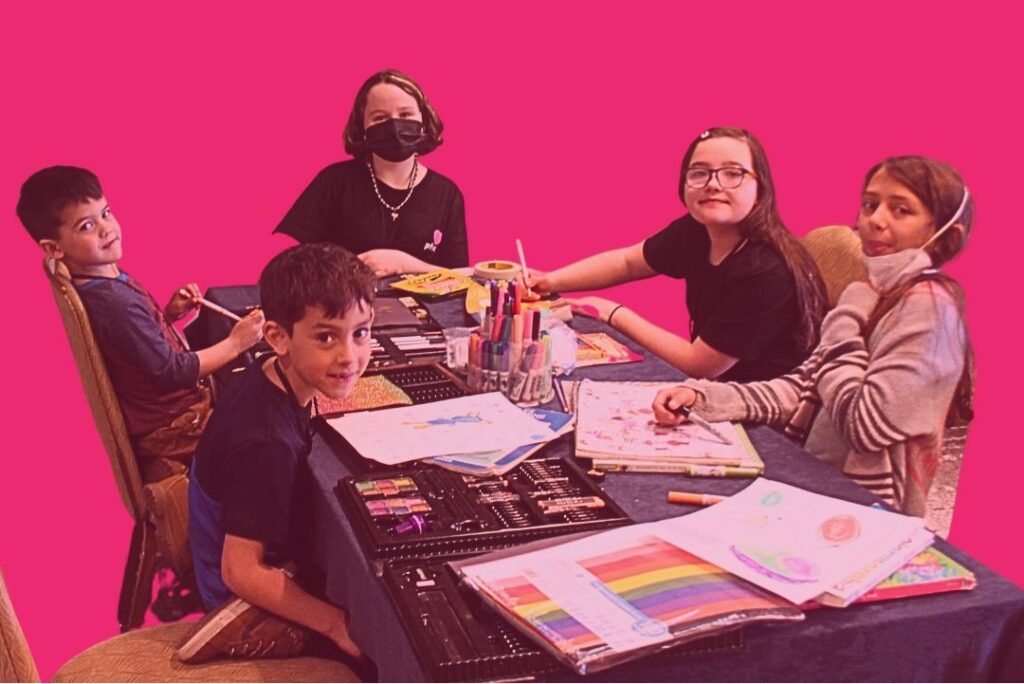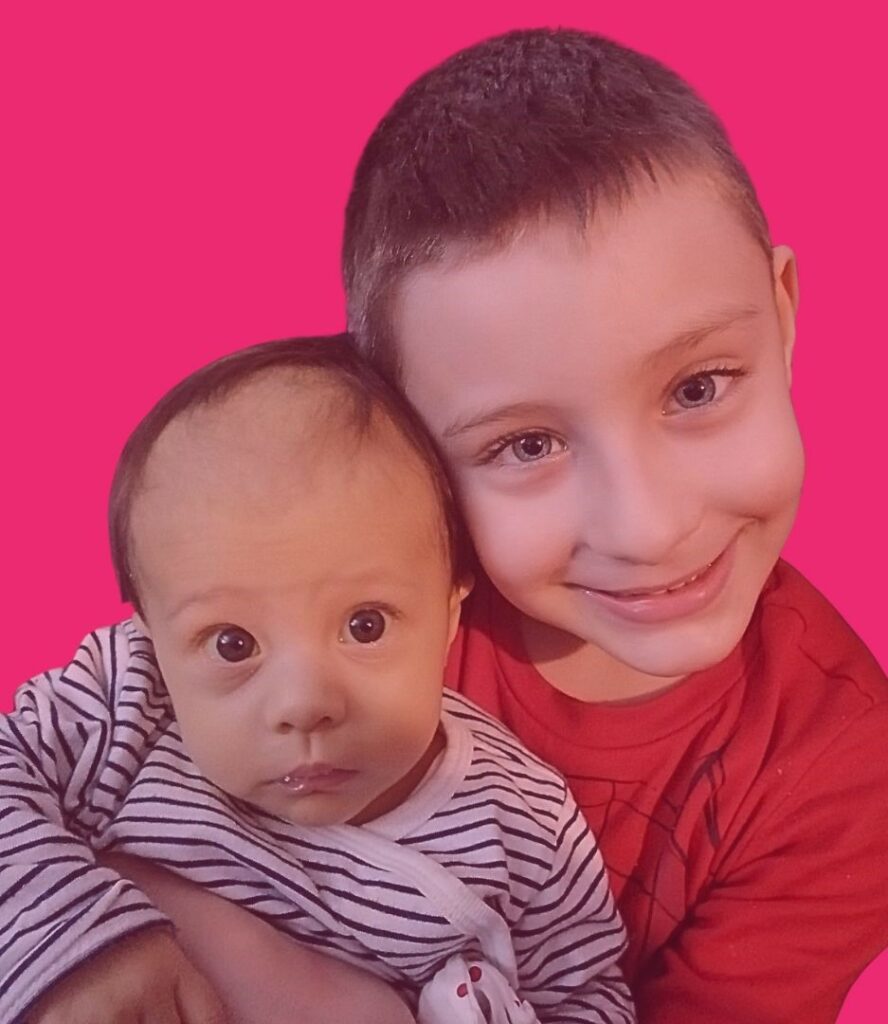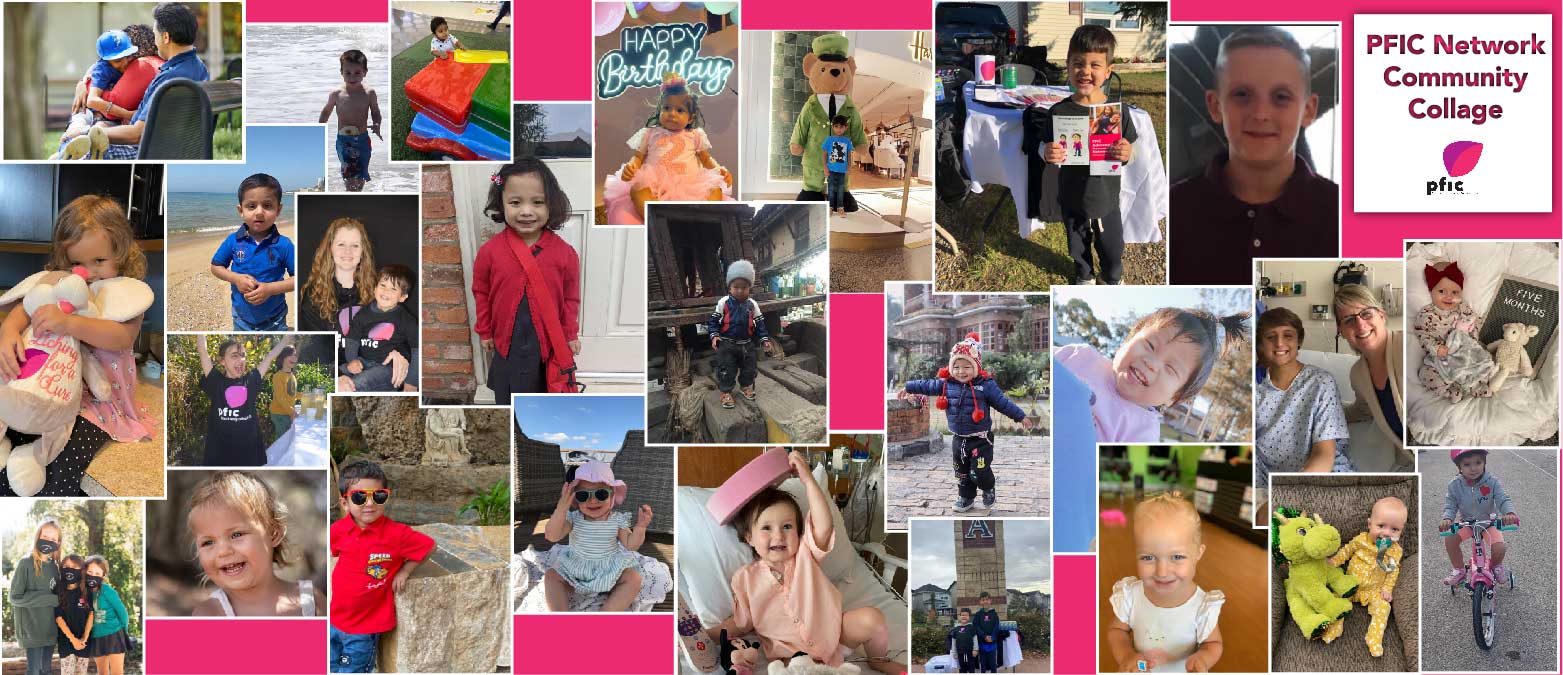Rare Siblings
By: Lisa Jensen, PFIC Network Support Group Facilitator
When one family member receives a diagnosis of a rare disease like PFIC, that diagnosis impacts the entire family. How it impacts each member is determined by a mish mash of variables, including everything from personality to age and role within the family. Today’s post is written for parents and caregivers, but it focuses on the experience of a different group: the siblings of patients with PFIC.
The Challenges of Being a Rare Sibling
Siblings of rare disease patients face unique challenges. They tend to live with greater uncertainty and anxiety than their peers. They may have to confront grown-up-sized worries or losses while they are still young. They may be separated from their PFIC sibling or from caregivers during hospitalizations. Siblings of PFIC patients often experience some degree of social isolation, as well—either because they need to reduce their own exposure to germs to protect their sibling or because their parents lack the bandwidth to nourish their social growth and connections.

It is understandable that parents of a child with PFIC often need to devote more of their time and energy to their sick child(ren) than to the ones who are well. But because children are better at observing the world than interpreting it, this inequality in parental attention can lead siblings to the erroneous conclusion that they are less loved than their brother or sister with PFIC. Sensing the stress and strain on their parents, rare siblings might keep their difficult emotions or other challenges to themselves, not wanting to add to their parents’ burden. In the long run, this can be detrimental to children’s well-being.
This last paragraph may feel like a heavy weight to sit with if you are the parent of multiple children, some with and some without PFIC. The good news is that you can help your children through these challenges. Challenges don’t have to be things that just tear us (or our children) down or apart; over time, they can be sources of growth and connection.
Supporting the Rare Sibling
Uncertainty and times of heightened hardship are bedrock realities for the whole PFIC family, but parents have the power to support children in interpreting and understanding these experiences. How children interpret their experiences can do as much to shape the trajectory of their lives as the experiences themselves. This means that you don’t need a magic wand or even an extra hour in your day in order to support your children through the experience of having a sibling with PFIC. You can have a powerful, positive impact simply by focusing on communication.

Communicate About What?
Researchers in the SIBS study, which assessed the impact of a parent-sibling communication intervention on the emotions and behaviors of siblings of kids with chronic disorders, highlight two main types of support that parents can offer their children through communication: informative support and emotional support. (This study focused on chronic disorders, but its findings are likely to be relevant to rare diseases, too.)
Offering your children informative support means communicating openly with all of them about PFIC. Research suggests that when children know more about the illness that impacts their family (communicated in an age-appropriate way), they tend to feel less anxiety about it.
Open communication can also help to prevent or clear up possible misunderstandings. For example, children might worry that they can “catch” PFIC the way you catch a virus. Keeping channels of communication open means that children are encouraged to ask questions and that their parents take the time to ask them questions, as well—to learn what they are thinking and feeling and how they are interpreting their experiences. This kind of open communication can add to the sense of connection and trust within a family because everyone is included in the sharing of information.
In this video from Global Genes, entitled “The RARE Siblings Experience,” one panelist urges parents not to think of this as a one-time, super-serious, sit-down conversation, but rather as an ongoing, always-open flow. These conversations can happen in the car, the grocery store, or the waiting room of a doctor’s office. If that isn’t already the norm in your family, that’s okay! Cultivate it with baby steps, like asking your kids open-ended questions or inviting them to bring their questions to you, and then doing your best to listen attentively and with curiosity and compassion. Simply by listening attentively and non-judgmentally to your children, you are offering them emotional support.
The SIBS study discusses the importance of this as follows:
“Siblings experience a range of different and often contradictory emotions in relation to the [disorder]. Contradictory emotions are difficult for children to comprehend, and adult support is beneficial to make sense of such experiences. Children’s psychosocial adjustment is related to their parents’ ability to label, validate, and encourage children to talk about emotions. Thus, open parent-child communication may increase siblings’ emotion sharing, develop siblings’ emotional understanding, and potentially lead to more adaptive problem solving and coping strategies.”
-SIBS Study, Journal of Child and Family Studies, June 2020
To validate your children’s feelings, you need to first know what they are. If you don’t already have a pattern of talking openly about feelings in your family, then it may take some time to achieve this. That’s okay. Start small by asking open-ended questions and by finding opportunities to model the healthy expression of emotion. Keep in mind that “mistakes” (e.g. parental meltdowns) are opportunities, too. If you lose your temper or say something you regret, that can be a chance to apologize in a way that gives permission to your child to feel big and confusing feelings, too. Sometimes, a simple display of humanness from a parent—like acknowledging one’s own difficult emotions or offering a genuine apology—can have a healing impact.
Making Our Own Meaning
Let’s briefly recap the main points of this post:
- PFIC impacts the whole family, but each family member is likely to experience that impact differently.
- Because each individual experiences the impact differently, they will interpret the experience and make meaning of it differently, too.
- Kids needs support in their meaning making. The best support comes in the form of accurate information, open communication, and emotional validation.
As you hone your communication skills and deepen your capacity for sitting with your kids’ difficult emotions, you will be building skills that can serve you in every single relationship. If you find yourself struggling to acknowledge, accept, and validate your children’s emotions, it may be because you struggle to accept and validate your own feelings. A therapist can be a great ally in learning to do this! We are also here to support you in the ways that we can. If there’s a question or topic you’d like us to address here on the blog, or if you’re in need of a listening ear, please reach out here.
